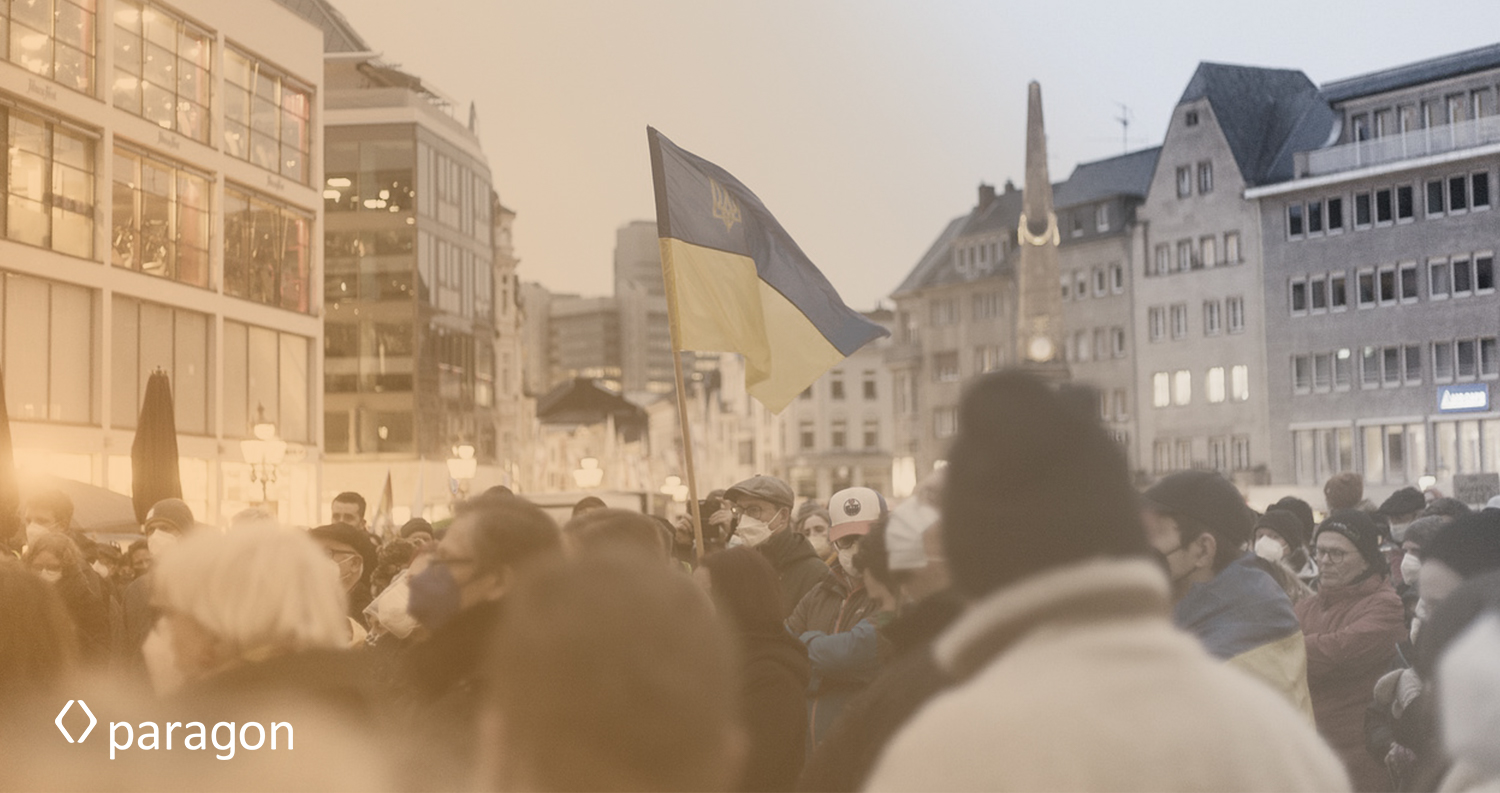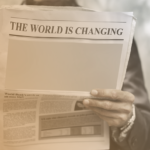The marketing message in war? Do the right thing!
The art of communicating beautifully comes naturally to some. Just watch Volodymyr Oleksandrovych Zelenskyy. The Ukrainian leader, once the voice of Paddington Bear, has transfixed a bated-breath global audience with his remarkable blend of eloquence and passion. His tone is pitch perfect. Even his attire – a simple khaki t-shirt – has become emblematic and inspirational.
It’s tempting to examine Zelenskyy’s success at telling his story and creating a model for how marketers should think and talk about their brands. But equating the existential nightmare of the war in Ukraine and the day-to-day challenges of selling stuff is superficial and plain wrong.
There are, however, serious challenges for marketers and brands. Shortly after the invasion, for example, scrolling through social media feeds felt surreal. The terrible news stories of men, women and children facing bombs were interspersed with jolly marketing tidbits of unwitting advertisers and influencers. Images of bombed hospital and convoys of rumbling tanks vied for space with new and improved crispy biscuit ads. No one was being insensitive – Algorithms were simply doing their thing.
The war – and, in the background, that nasty paranoiac fear of a possible nuclear attack – changed the marketing-sphere. Many ads were pulled or may never see the light of day. The award-winning ad campaign for price comparison site Compare The Market starring meerkats with Russian accents has been ditched. Sensibly, instead of trying to say clever things brands have decided to do something instead. The growing force of brand activism suddenly made a lot more sense.
Actions speak louder than words
Elon Musk, typically, was quick off the mark on twitter. Out-Musking himself, he challenged Putin to a winner-take-all fight… with Ukraine as the stake. More usefully, he sent truckloads of Starlink satellite dishes to the country so the government could stay connected as internet access deteriorated. It was very soon after Mykhailo Fedorov, Ukraine’s deputy prime minister, had asked for Musk’s help and tweeted a picture of the Starlink dishes.
AirBnB offered free accommodation to 100,000 refugees from Ukraine with a scheme funded by AirBnB, donors and hosts. Brian Chesky, the co-founder and CEO, tweeted: “We need help to meet this goal. The greatest need we have is for more people who can offer their homes in nearby countries, including Poland, Germany, Hungary and Romania. If you can host a refugee, go here: http://airbnb.org/get-involved”.
The trickle of early brand activity turned rapidly into a torrent. By April 8 an estimated 600 companies had announced their withdrawal from Russia, according to the Yale School of Management. The assessment is not based on press releases but on-the-ground analysis of what is happening.
It’s almost invidious to pick out a few examples. However, all sectors responded. Goldman Sachs turned off their screens in Russia. Burger King turned off the flame, although the local franchisees did turn it back on. McDonalds, too. Heineken and Molson turned off the taps. Amazon stopped shipping and closed Prime. No more Netflix. L’Oreal screwed the lids firmly back on their pots and bottles. Because – and this really isn’t a joke – the Ukrainians are worth it…
What’s in a name?
Other brands have had to make more profound changes, including altering the brand itself. Vodkas, which have often made a virtue of Russian-ness, are in a tight spot. Even brands with a tenuous link to the country have an image problem. Take Stolichnaya, which is made in Latvia. It has been rebranded as Stoli. “I have personally experienced persecution by Putin’s regime and I share the pain of Ukraine and its people,” explained Yuri Shefler, the brand’s founder.
Shefler bought the struggling business in 1997 and transformed it into a successful global company but, he says, in 2000 Putin’s regime spotted its value and started trying to take control of the name. In some countries the struggle for the trademark continues today.
In the UK, Better Naked, a vegan food brand, renamed its plant-based Chicken Kiev product as Chicken Kyiv, the Ukrainian spelling, and promised 50 per cent of the profits from the line will go to humanitarian relief. The supermarket chain Sainsbury’s has made the same name change.
Russian ad world goes dark
Marketing spends vanished in Russia. The Association of National Advertisers (ANA) and World Federation of Advertisers (WFA) didn’t call for a ban in Russia, but there was no need. In a poll of members representing $43 billion in global ad spending, the WFA revealed: “three in four have reallocated, reduced or cut spend altogether.”
Unilever and P&G went dark. Unilever CEO Alan Jope said the company would continue to supply “everyday essential food and hygiene products made in Russia to people in the country,” but would not profit from the sales, adding that nearly $5.5 billion of essential Unilever products would be donated to help humanitarian relief.
If history is anything to go by, then “doing the right thing” is a good move. While WWII raged around the world Robert Woodruff, Coca-Cola’s then larger-than-life president, promised that every “man in uniform” could buy a Coke for five cents – “wherever he is and whatever it costs the company”. And he was true to his word. Coke opened plants wherever American GIs travelled. The brand’s reputation was made and those temporary plants became a huge logistical advantage as it began to take over the world.
As marketers we like to talk about purpose. The DNA-type purpose that adds a unique intrinsic value to our ice-cold light beers and risk-free financial services, our oh-so-velvety coffees and super-bright ultra-white toothpastes. But sometimes there’s a deeper purpose that we – as marketers – can focus on. And that’s making the world a better place. Russia’s state-run media cannot disguise the fact that the once glitzy shopping malls of Moscow are almost closed for business. The lights are going out. It’s a powerful statement.
If you would like to talk to us about your brand purpose, we would love to hear from you.



